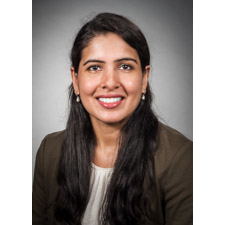Sumreen Majeed, MD
440 East Main Street
Bay Shore, NY 11706
Bay Shore, NY 11706
Sumreen Majeed, MD, specializes in hematology, medical oncology, and is an assistant professor of medicine at the Donald and Barbara Zucker School of Medicine at Hofstra/Northwell. She is also board certified in hospice and palliative medicine as well as internal medicine.While attending Ross University School of Medicine, her hematology/oncology elective left a strong impression on her. Coincidentally a close family member was also diagnosed with cancer at the same time. The combination of these two experiences led to her specialization, especially since it involves extensive patient care and making a difference in the lives of others, she says.After residency at Nassau University Medical Center and fellowships at Cleveland Clinic Foundation and St. Elizabeth’s Medical Center in Boston, Dr. Majeed joined Northwell Health in 2016, where she focuses on helping patients understand their diagnosis and treatment options.“What I try to do first is simplify the medical aspect, so patients can have a better grasp of their cancer diagnosis,” she says. “Then we can make a clear plan together, so patients know what to expect in the coming weeks. Often when patients come to me, they are overwhelmed, which is understandable. My goal is to help them feel more in control and clear about what’s ahead.”,br/>In return, she adds, patients have taught her about resilience, kindness and humility—qualities she strives to bring into her work every day at Northwell.Dr. Majeed strongly believes in a multidisciplinary approach to patient care. She collaborates regularly with other Northwell physicians including surgical oncologists, radiation oncologists, interventional radiologists. Part of the team also are social workers, dietitians, research nurses. She attends tumor boards regularly, where cases are discussed to get a wide range of perspectives.Overall, these teams offer everything a patient needs to get comprehensive care without having to travel to multiple locations. In the midst of intensive treatment for a disease like cancer, that can be crucial, she says.“Having high-quality care close to home is essential,” she says. “It lessens the burden a little when most of the patient care is in one place.”

